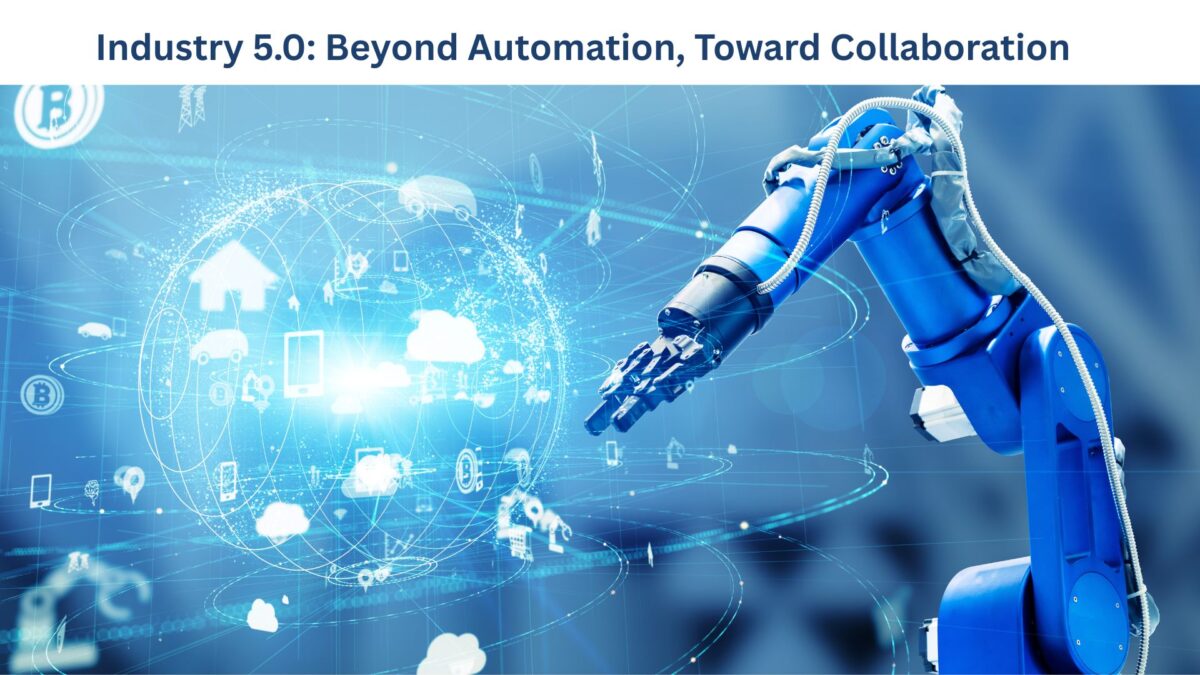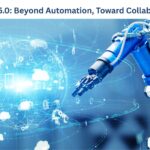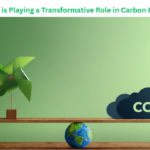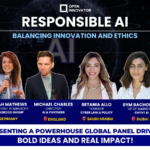The industrial landscape is evolving at a rapid pace, moving beyond the efficiency-centric automation of Industry 4.0. Industry 5.0 represents the next phase of this technological revolution, focusing on the integration of human-machine collaboration, sustainability, and ethical artificial intelligence (AI) to reshape the future of industry.
Unlike its predecessor, Industry 5.0 does not aim to replace human workers with machines but rather to enhance human potential by empowering them with AI-driven tools and systems.
This shift towards a more holistic and human-centric approach to industrial innovation is driven by the desire to create a more resilient, sustainable, and socially responsible industrial environment.
Industry 5.0 vs. Industry 4.0: Understanding the Shift
While both Industry 4.0 and Industry 5.0 are founded on data-driven automation, the way they incorporate human involvement is fundamentally different. Industry 4.0 focused on automation and efficiency, often reducing the role of humans. In contrast, Industry 5.0 places a strong emphasis on human-centricity and sustainability, with humans at the core of decision-making and value creation alongside AI and automation technologies.
The Key Features of Industry 5.0
At the heart of Industry 5.0 lies the recognition that human creativity and intelligence are irreplaceable in manufacturing. It diverges from Industry 4.0 by emphasizing collaborative AI-based systems that prioritize three main aspects: AI that complements human skills rather than fully replacing workers, tailored production to suit individual strengths, and improved work conditions stemming from reduced repetitive work, all of which boost job satisfaction and employee well-being. This sees AI as a strategic ally, fostering innovation while keeping humans central to industrial processes.
Industry 5.0 also champions sustainable and ethical AI practices. It incorporates the circular economy into industrial planning, which includes minimizing waste and optimizing material use. Moreover, it employs AI to create environmentally friendly manufacturing methods, such as cutting emissions and improving resource efficiency.
Transparency and fairness in AI operations are paramount, ensuring equitable decision-making without bias. This holistic approach to AI integration promotes an industrial landscape that values human contribution and environmental stewardship. This comprehensive approach to industry success now requires companies to be evaluated on both financial performance and their environmental footprint and social contributions.
Cobots, or collaborative robots, are central to Industry 5.0’s human-machine integration. These AI-powered helpers operate alongside humans, enhancing precision and adaptability in manufacturing. They also bolster workplace safety by intelligently monitoring environments and minimizing risks. Unlike traditional automation, cobots tailor production systems to incorporate human expertise, refining automated procedures. This represents a shift in industrial thinking, where AI serves to complement rather than replace human intelligence.
Resilience in Industry 5.0: Preparing for Global Disruptions
Recent challenges such as the COVID-19 pandemic and geopolitical uncertainties highlight the urgency for versatile industrial systems. Industry 5.0 emerges as a solution, introducing decentralized smart factories capable of maintaining operations amidst supply chain disruptions. Predictive analytics driven by AI are central to this approach, enabling anticipation and risk mitigation prior to reaching critical stages. Additionally, energy-efficient automation is a key component, offering dual benefits of cost reduction and environmental footprint minimization. This enhanced resilience equips companies to better withstand potential future crises.
Beyond Manufacturing: Industry 5.0’s Expanding Influence
The principles of Industry 5.0 extend beyond manufacturing, influencing various industries. One such area is AI-driven healthcare innovation, which involves using AI algorithms for personalized medicine and automated medical diagnostics to reduce errors and enhance patient outcomes. Additionally, it emphasizes the ethical application of AI to ensure fair and transparent decision-making in healthcare. Another is smart cities and infrastructure, where AI aids in optimizing urban sustainability through advanced urban planning and managing energy grids efficiently. Sustainable agriculture also benefits from Industry 5.0 with the introduction of precision farming to minimize resource waste and AI-managed supply chains to bolster food security. This evolution aims to harmonize technology integration across sectors, prioritizing both efficiency and sustainability.
Strategic Adoption: How Businesses Can Transition
To embrace the era of Industry 5.0, companies are advised to undertake several strategic steps. Firstly, they should integrate AI-assisted collaboration tools that are designed to complement the capabilities of human workers rather than outright replace them. This approach ensures that the workforce remains an essential part of the industrial process, leveraging technology to enhance their productivity and efficiency.
Secondly, businesses should shift towards incorporating sustainable production models that are aligned with the principles of the circular economy. This means adopting practices that reduce waste, promote resource recycling, and encourage the longevity of products. Thirdly, establishing ethical AI governance is crucial to minimize the risks of bias in decision-making processes and to enhance transparency. This involves creating guidelines and frameworks that ensure AI systems are fair and accountable. Lastly, investing in human-AI partnerships through workforce upskilling is vital.
By training employees to work effectively alongside intelligent systems, companies can foster a collaborative environment where humans and AI co-exist and learn from one another. This focus on human-centric innovation empowers organizations to be at the forefront of the Industry 5.0 revolution, leading the way in the integration of advanced technologies while keeping human well-being and societal impact at the core of their strategies.
Takeaway
Industry 5.0 represents a significant pivot towards a more resilient, sustainable, and ethical industrial future. As technology advances, the balance between AI-driven efficiency and human creativity becomes increasingly important. Businesses that embrace Industry 5.0 principles will find themselves at the forefront of a new era that values both technological prowess and the ingenuity of human workers.
Reach out to us at open-innovator@quotients.com or drop us a line to delve into the transformative potential of groundbreaking technologies. We’d love to explore the possibilities with you






